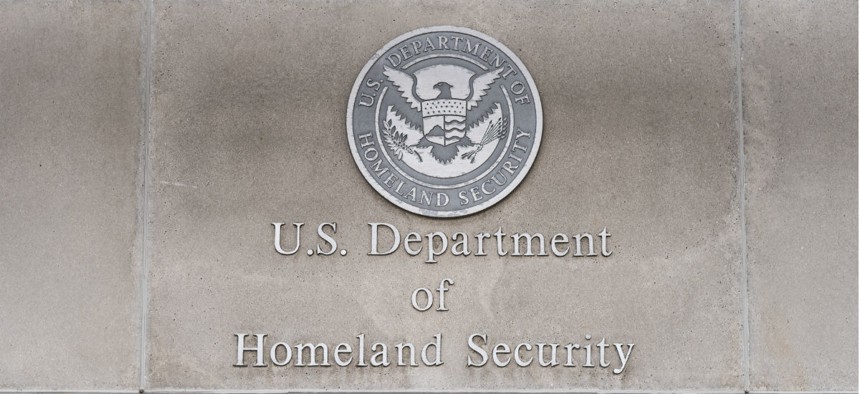8 Companies Protest $1.5B DHS Agile Buying Experiment

Keith Homan/Shutterstock.com
At least eight companies have filed protests with GAO.
A new Homeland Security Department program promoting agile software development has hit a stumbling block.
The $1.54 billion Flexible Agile Support for the Homeland contract vehicle—a group of 13 vendors pre-approved to sell agile services to the department—has been halted by protests from at least eight companies not included on that list.
Washington Technology first reported the protests.
INTEGRITYOne Partners, Harmonia Holdings Group, Cybermedia Technologies, Brillient Corp., Citizant, Ventera Corp., Incentive Technology Group and BC Digital Services filed protests with the Government Accountability Office. Though Congress let GAO’s authority over civilian task orders worth more than $10 million lapse in September, President Barack Obama on Wednesday signed into a law a bill that makes the authority permanent.
» Get the best federal technology news and ideas delivered right to your inbox. Sign up here.
DHS announced the awards in November. The department selected 13 companies out of 114 after they demonstrated their agile methodologies, such as rapid prototyping and user-centered design, in a technical challenge.
The contracting vehicle arose shortly after the General Services Administration's tech consultancy 18F tried its own agile buying experiment. Much like FLASH, 18F's Agile Blanket Purchase Agreement was almost immediately halted by protests from companies arguing the process by which their technical challenges were evaluated was unfair.
The protests against FLASH are just part of the experimentation process, DHS Chief Procurement Officer Soraya Correa said at a recent event in Washington hosted by the ACT-IAC trade group. "Yes, we have protests ... those will be resolved and we will move on," she said.
She said FLASH is a sort of experiment in which DHS is trying out new ways to connect with industry; the ultimate goal is to cut the time to task order to about two weeks. But increasingly, government leaders in a position to experiment with new buying models are fearful of the criticism and oversight reports that often follow bid protests, she added.
"We've got to start getting rid of that fear," Correa said. "We've got to start making it OK to sometimes make a mistake, as long as you're making an intelligent mistake. It's OK to take a few chances, and you know what? Every now and then, we're going to stub our toe."
DHS may learn from 18F on how to handle the protests. Correa told Nextgov this summer that "At DHS, [the] people we have working on these are folks from the Digital Service group, with the CIO, that are in constant communication with the digital services in 18F and the White House," especially about how to evaluate proposals.
Protests stalled 18F's Agile BPA for months after the award. Correa told Nextgov on Wednesday DHS generally doesn't issue task orders on contracting vehicles under protest until they are resolved, though she noted "no decision has been made to not issue or issue" task orders on FLASH.
FLASH was always "intended to be a pilot," DHS Chief Information Officer Luke McCormack said during an AFCEA event in Washington this summer. “We’re going to put FLASH out there … and will probably have a FLASH 2.0," he said.
McCormack told an audience Wednesday he has been in touch with President-elect Donald Trump's transition team, and that he sensed that it would continue work on FLASH. There's "stuff in the pipeline right now," he said, adding the incoming administration's policies might place more "demand on our agency," which could "force us to get even more creative" about buying.
NEXT STORY: Video: NASA Harvests Another Round of Veggies





